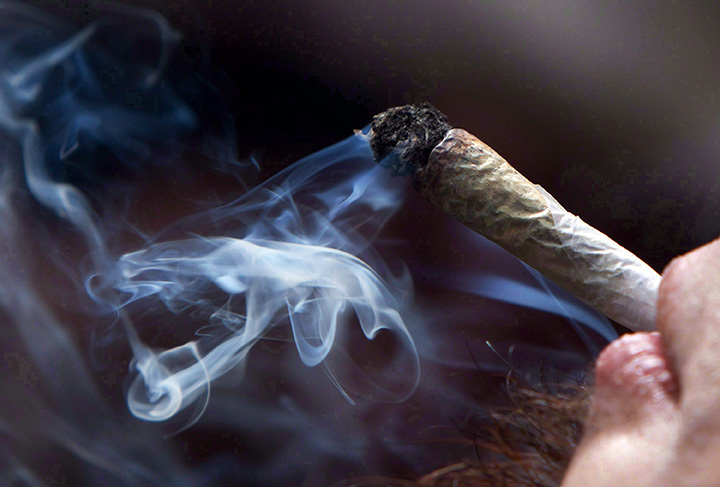In a new policy reportedly set to be announced later this week, the RCMP will ban Mounties from using legal pot almost a month before any shift.

Despite the fact marijuana will be legal to consume as of Oct. 17, Global News has confirmed members of the RCMP will not be allowed to consume cannabis within 28 days of a shift, a move that will put the force at odds with the policies in place for most members of the military and several local police forces.
Officials say there were concerns over how long the effects of cannabis will last and what might happen if a Mountie involved in a shooting or accident tests positive for THC, the active component in cannabis that creates the feeling of being high.
READ MORE: Department of National Defence establishes recreational cannabis policy
Legalizing marijuana was a hallmark campaign pledge of the federal Liberal government.
As of next week, Canadians over the age of 18 or 19, depending on the province, will be allowed to purchase cannabis from public or private vendors, depending on the province where they live.
However, the finer details of how regulation will work have left many scratching their heads.
WATCH BELOW: Halifax police lay out pot regulations

Determining the threshold for driving while impaired is one area in which the government has declined to provide clear answers about exactly when a person could be charged if they are driving after using marijuana.

Get breaking National news
Justice Minister Jody Wilson-Raybould said on the West Block that decision will be made on a “case-by-case” basis.
READ MORE: When will you be charged for driving after smoking pot? ‘It depends on a case-by-case basis’
Part of the difficulty in setting out clear limits on the use of marijuana has been the fact that THC can linger in the blood for days after a person consumes pot.
Unlike with alcohol, there is no standard serving or concentration of cannabis that is metabolized within a clear time frame.
Global News requested clarification from the RCMP about the policy but has not received any response.

Other law enforcement agencies have taken a different approach in recent weeks.
The Department of National Defence introduced its policy on cannabis use in early September.
That set out rules that a member will be banned from consuming marijuana eight hours before they start work.
WATCH BELOW: DND sets marijuana use regulations

They will also be banned from consuming any when deployed abroad or when on any vessel, vehicle and aircraft under the military’s authority.
The only members of the military to face a 28-day ban are those serving on submarines, crew members in military aircraft, and drone operators.
Those dealing with loaded firearms or explosives, assigned to emergency response duty, or with the loading or maintenance of military aircraft, will face 24-hour bans.
Ottawa Police Chief Charles Bordeleau announced on Oct. 1 that members of that force will also be allowed to use cannabis when not on the job as long as they are “fit for duty” when they arrive for their shifts.
- Trump slams Canada as U.S. House passes symbolic vote to end tariffs
- ‘We now have to figure out how to live life without her’: Mother of Tumbler Ridge shooting victim speaks
- Carney, federal party leaders to attend Tumbler Ridge shooting vigil Friday
- Mental health support after Tumbler Ridge shooting ‘essential,’ experts say
The Vancouver Police Department also implemented the “fit for duty” requirement rather than a time-frame ban on consumption.
Saskatoon Police Chief Troy Cooper has also hinted his force is likely to take the same approach.
The Calgary Police Department is the only one at this point to employ a “zero tolerance” approach and not allow members to consume any pot.
However, a representative for the Toronto Police Association said on Tuesday that the Toronto Police Service, whose members it represents, may also be considering a 28-day ban.
“The TPA is aware that the Toronto Police Service has drafted a policy on the use of cannabis by our members,” said Mike McCormack, president of the Toronto Police Association, in a statement.
“The TPA has not seen this policy nor have we had the opportunity to review its content. We are aware the draft policy may contain a 28 day waiting period before a member can report for duty after consuming cannabis.”
— With files from Global News’ Mercedes Stephenson








Comments
Want to discuss? Please read our Commenting Policy first.